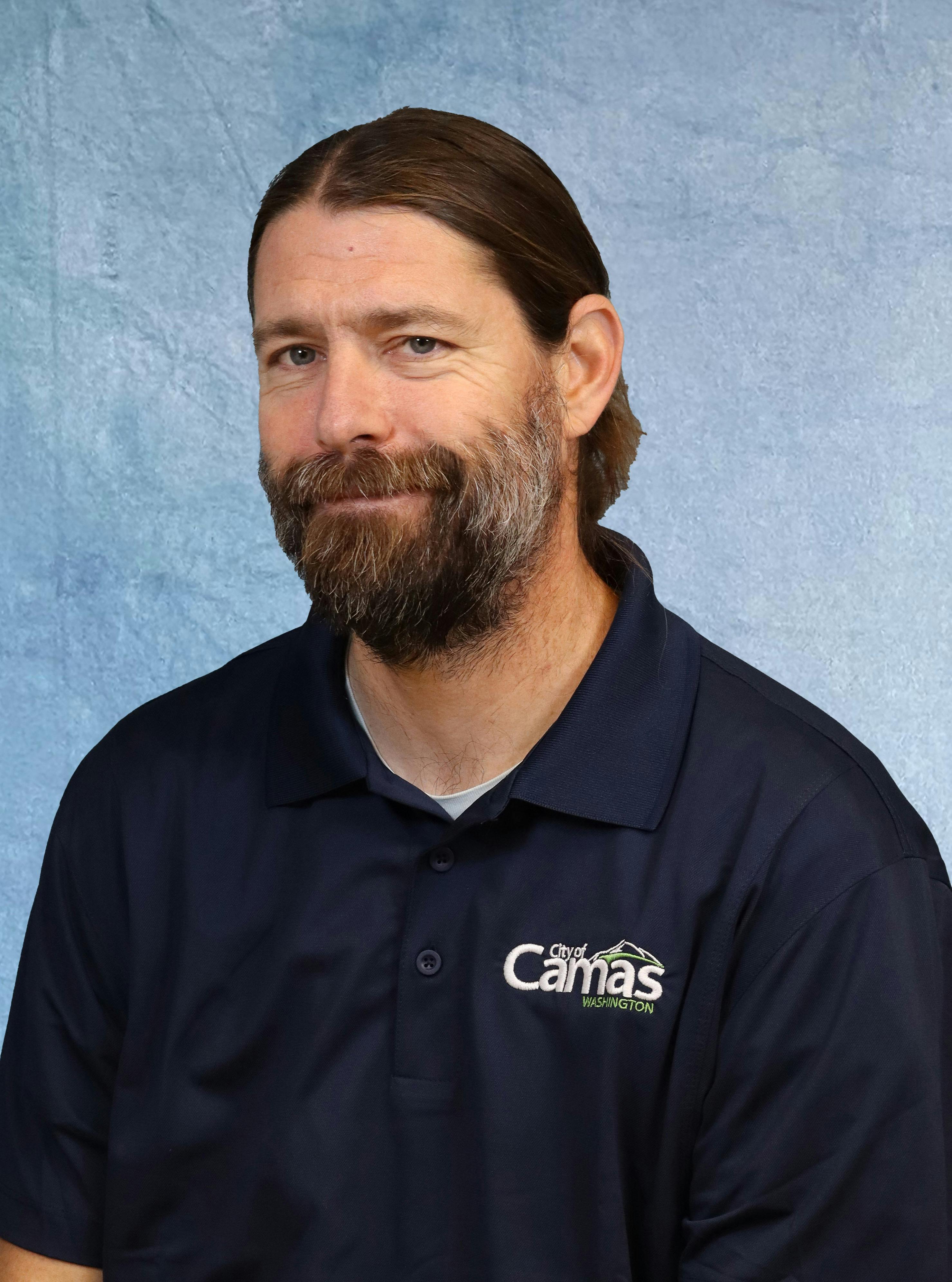Lake Management Plan
**UPDATED 11/21/25**
The City received notice that Ecology has approved the Lacamas, Round, and Fallen Leaf Lakes Management Plan and Lake Cyanobacteria Management Plan (LCMP). The draft LCMP was submitted to Ecology in November 2023. Resolution No. 20-016 was signed November 16, 2020 (can be found in Project Documents Section). A lot of effort and hard work went into this plan over the course of five years. We continue to commit to the Program with a robust monitoring plan and data analysis to help make data driven informed decisions on treatments and future projects. Now that the LCMP is finalized, we can apply for Ecology Freshwater Algae Control Grants to continue work on Lacamas, Round and Fallen Leaf Lakes.
**Updated 7/7/25**
Attention! The Leadbetter boat ramp will be closed to the public, Monday, July 14, 2025 - Wednesday, July 16, 2025, for staging and treatment operations. Contractors from Aquatechnex will be onsite conducting Aluminum Sulfate treatment to help reduce harmful algal blooms in Lacamas Lake. You will potentially see multiple boats out conducting work, please provide them with space to do so. We ask that the public limit recreational activities during the application, however, if you’re on the lake please stay away from the spray application boats.
**Updated 6/9/25**
In late June/early July, Aquatechnex will be treating Lacamas Lake with Aluminum Sulfate (Alumn) to help reduce the amount of Phosphorus in the lake and improve water clarity. Alumn is sprayed on the lake and binds with phosphorus and organic matter creating a flocculant that falls to the bottom of the lake making the Phosphorus unavailable to algae. This will be the first of two treatments for Lacamas Lake this summer. A second treatment using Eutrosorb G is anticipated to occur later in the summer. Increased water quality monitoring will accompany the Alumn treatment, and the data will be used to help make the decision on when to apply the second treatment.
Aquatechnex will be sending letters to lakeside residences and businesses before treatment takes place, adhering to the city’s Aquatic Plant and Algae Management General Permit. Although there are no water use restrictions during Alumn treatment, please allow the contractor to work without distractions. For safety reasons, it is best for public and pets to stay away from the treatment boats.
**Update 5/16/25**
The City has been working with Clark County in connection with Lake testing to determine where Cyanotoxin tests should be conducted. Generally speaking, the County tests for Cyanotoxin when visual indicators show it might be present. As such, the Cove area of Lacamas Lake, next to the boat launch, is currently the area with the most blooms. This is due to a number of factors, with the main factor being that the water is more stagnant in that particular area. Because of this, the County may issue an advisory for the whole lake, when much of the issue is centered at the Cove. With this in mind, the City has worked with Clark County to develop a plan to close the cove to the public. The area will now be restricted and closed off with buoys and fencing. In addition, signs will be posted warning the public that the area is closed, and the reasons associated with that decision. This action should not impact recreation and will provide the City with testing opportunities, while also protecting the public. 
*Update 7/16/24*
Interested in more information about EutroSORB, click here: https://engagecamas.com/11759/widgets/35434/documents/53199
For the EutroSORB Product use guide, clickhere: https://engagecamas.com/11759/widgets/35434/documents/57400
Please be careful when using the water and know how to identify harmful algal blooms (https://clark.wa.gov/public-health/harmful-algal-blooms#bloom2).
Please note, Public Health visually inspects several public access points along the shore of the lake for algal blooms each week. A water sample is collected from the area with the densest algal bloom and tested for toxins. Laboratory limitations prevent Public Health from submitting more than one sample for testing each week. When toxin levels from the water sample are elevated, an advisory is issued for the entire lake to protect the health of people using the lake for recreation.
Toxin levels need to be below the threshold set by the state Department of Health for two consecutive weeks for the warning advisory to be removed.
*UPDATE* 3-21-24:
Following recommendations from the recently completed Lacamas, Round, and Fallen Leaf Lake Management Plan, the City is moving forward with chemical treatment of Lacamas Lake later this summer to help control the amount of phosphorus in the water which contributes to harmful algal blooms. Community members may soon see a Public Notice in the Post Record the next couple weeks referencing “coverage under the Department of Ecology Aquatic Plant and Algae Management Permit”.
This public notice, along with additional on-site notices a few days prior to, and the day of, treatments are a part of the permitting process. We are proposing to use a product called EutroSORB WC that permanently inactivates the phosphorus and can be applied via surface spray from a boat. EutroSORB does not impact water quality or chemistry and has an excellent safety profile with no environmental, health, or safety concerns for workers, recreational users or fish and wildlife – the applicators typically just ask for space from recreational users when on the lake applying the product.
We’ll provide more information as warmer weather approaches! In the meantime, here’s a great video from Kitsap Lake in Bremerton, WA, showing the application and benefits they’ve seen from this same line of products - https://vimeo.com/748163014/309e2cad13
The City has developed a draft Lakes Management Plan that outlines actions to improve water quality in Lacamas, Fallen Leaf and Round lakes. This effort will address algae blooms, along with other water quality concerns that the City Council and public has identified as top priorities.
The draft Lakes Management Plan identifies “in-lake” actions to improve water quality in the lakes and recognizes the importance of current partnerships with Clark County, Washington State Department of Ecology and other agencies for carrying out recommended watershed-based strategies and actions. It is also likely that certain actions will be better suited through formalization of agreements with those public agencies and/or with additional partners such as nonprofit organizations, volunteer groups and other community associations or groups.
We recently completed water quality sampling and monitoring in the lakes to better understand what is causing poor water quality and to inform the development of potential management strategies. We’re using this data, along with public feedback we received last year, to help us choose strategies to improve the lakes’ water quality. You can read about what we did in Phase 1 here.
The water quality sampling results and preliminary recommendations for how to manage the lakes were shared with the community at our summer 2023 open house.
The draft Lakes Management Plan will be shared with the City Council at a special workshop on September 28th. Check out the presentation and meeting agenda to learn more. Following the workshop with City Council, we will submit the draft Lakes Management Plan to the Washington State Department of Ecology for review in October. Simultaneously, the plan will be available for review and comment by the City’s stakeholders that played a key role in development of the plan. Upon receiving comments from all parties, the plan will be submitted to the Washington State Department of Ecology for approval.
Check out our FAQs to learn more about the timeline and contents of the draft Lake Management Plan.
 Phase 2 Schedule (click to enlarge)
Phase 2 Schedule (click to enlarge)
The City cannot do this alone – we need your help.
We are working with local and state agencies, nearby landowners, conservation groups, and other stakeholders to understand what is affecting the lakes’ water quality and find solutions that improve the lakes’ water quality.
You can help reduce the nutrients algae needs to bloom and grow by doing the following:
- Use less fertilizer, or none. If you do use fertilizer, use it only during dry weather. More info at Clark Conservation District.
- Use less pesticide, or none.
- Use recommended landscape practices.
- Control runoff and soil erosion.
- Pick up your pet’s waste and throw it away. (Pet waste has nutrients, plus bacteria that degrade water quality.)
- If you have a septic system and live near Lacamas Lake, get reimbursed up to $1,130 through the Poop Smart Clark program for inspecting and maintaining your system. Go to www.poopsmartclark.org to learn more.
- Respect all rules for using the lakes and nearby parks.
- Keep trash out of the lakes, off the shorelines and out of the parks.
- Before and after using any watercraft, remove and dispose of any aquatic plant fragments clinging to it.
- Don’t wash watercraft or vehicles near the lakes.
Learn more about other efforts in the Watershed from our valued partners. Visit the links below for more info!
Resources
- Current Advisories: https://clark.wa.gov/public-health/public-beaches
- Clark County Public Health Harmful Algal Blooms: https://clark.wa.gov/public-health/harmful-algal-blooms
- Ecology Lacamas Creek Watershed Partnership for Clean Water: https://www.ezview.wa.gov/site/alias__1962/37698/lacamas_creek_partnership_for_clean_water.aspx
- Septic System Reimbursements Through Poop Smart Clark: Go to www.poopsmartclark.org, email poopsmart@clarkcd.org, or call Carolyn Rice at (360) 859-4848 for more information.
Partnerships
- Lacamas Watershed Council: https://www.lacamaswatershed.org/
- Watershed Alliance of Southwest Washington: https://thewatershedalliance.org/
- Clark Conservation District: https://clarkcd.org




